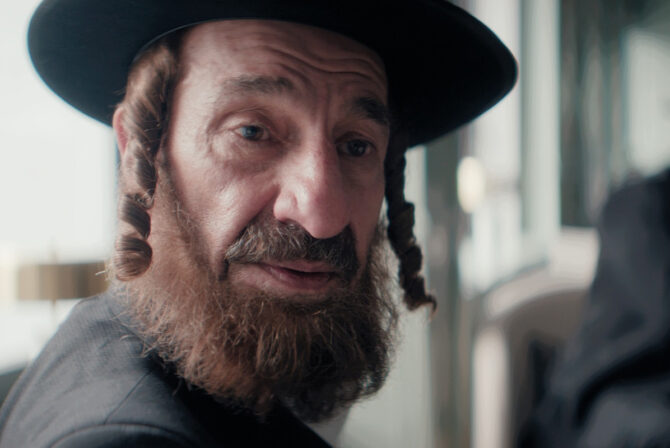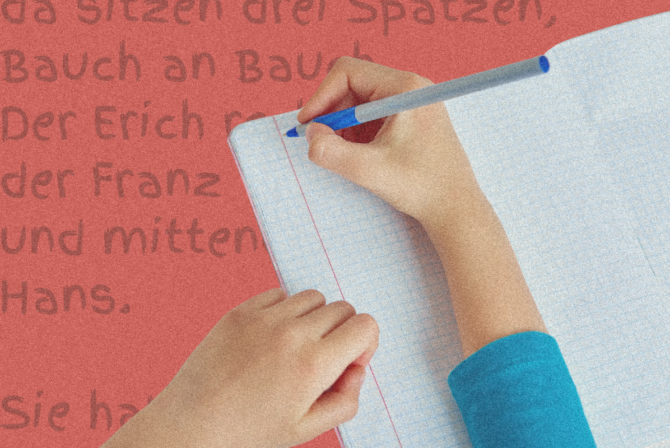During Sukkot, we remember how God freed our ancestors from slavery in the land of Egypt. We build sukkahs, flimsy booths meant to recreate the temporary dwellings used while we wandered across the desert, leaving home behind.
I have been on my own wandering journey for about 14 years. I was brought up in a knowledgeable Reform Jewish home. As kids, my siblings and I lived in Upstate New York, and regularly attended temple services. The congregants barely filled two rows of pews if you mashed us all together. I loved it. I loved the hired soloist’s resonant soprano melodies, and the warmth of cuddling up to my father’s corduroy-patched sport coat. I jumped up and down out of my seat a million times, inhaling the rich aroma of coffee and wandering the lobby to sneak glances at the desserts piled high on the kiddush tables.
I knew that when I grew up, I was going to marry a Nice Jewish Boy, even though my parents had never planted the idea in my head. After the requisite years of adolescent angst, which involved piercing things you couldn’t see and dying my hair a variety of vibrant colors, I grew restless. I took a year off of college, worked, and traveled to Israel on a Birthright trip. There, in the city of Jerusalem, I found hope and inspiration.
Upon returning home, I settled into an Orthodox observance level that left my parents and friends gaping like a fish. Gone were the low-cut clingy tops, glitter-smeared bosom, and nose piercings. These were cleared to make way for long skirts, modest dresses, and a strict adherence to kashrut and Shabbat. During my junior year of college, I met a Nice Jewish Boy at the campus kosher kitchen. While my peers were planning Spring Break trips to sunny beaches, I wrote out wedding invitations. I covered my hair with a sheitel, immersed myself in the local Chabad House activities, and settled down to fulfill my vision of becoming a stay-at-home mom.
Two children and five and a half years later, this life came to a grinding halt. My husband and I had failed to build a lasting homestead. Like the sukkah, we had crafted a temporary dwelling without solid roots. As partners, we simply could not withstand the pressure and unpredictability of nature’s wrath.
When I decided my marriage was over, I spent long hours, days, and weeks considering how this would affect my children. Was my own unhappiness reason enough to cause upheaval in their lives? My answer was yes. I wanted to model considerate and healthy interactions in front of my kids–and that just wasn’t happening anymore with my husband. As my marriage came to a close, my connection with observant aspects of Judaism was challenged. If I was no longer a wife, why was I covering my hair? How was I supposed to entertain two young children for 24 hours over the course of Shabbat without any electronics to give me a moment of peace? Everything just seemed too hard. So I separated myself from the observant community and went back to what I grew up with.
But I soon realized that you cannot forget what you know. During my six years of religious observance, I had studied many texts, learned in an egalitarian yeshiva for eight weeks, and debated fundamental teachings with rabbis. I had visited Israel, watched the sun rise over Jerusalem, and stood with tears streaming down my face as I pressed my forehead against the Kotel. I could not go back to praying in the synagogue of my youth, where certain beliefs did not ring true to my ears. Yet I no longer belonged at the local Orthodox shul, where I felt I would be looked down upon for my change in dress and observance.
And so I wander.
As a mother, observance affects me on two levels–my own, and that of my children. Fortunately, my kids go to a Hebrew day school, so their core of Jewish knowledge, history, and language is strong. I have found ways to engage my own intellectual interest and excitement about Judaism by teaching Hebrew School on Sundays and tutoring bar mitzvah students. As a family, we talk about God and holidays. We cuddle at night, say prayers, and discuss why it is important to be kind and generous. My children can spin the dreidel with the best of them.
I can’t imagine what it must have been like for the Jewish people to wander the desert for 40 years. Forty years! Traveling every day, hoping that you made the right decision, trusting in your leader, praying to God to stay on the path. Ultimately, the Jews were rewarded with the land of Israel. Their diligence and faith paid off.
During this time of year, I try to remember that very few paths are straightforward. For now, I am simply grateful to live in a time where I can learn and express my love of Jewish culture and customs, free to wander until I find my true path.
Like this post? Get the best of Kveller delivered straight to your inbox.







